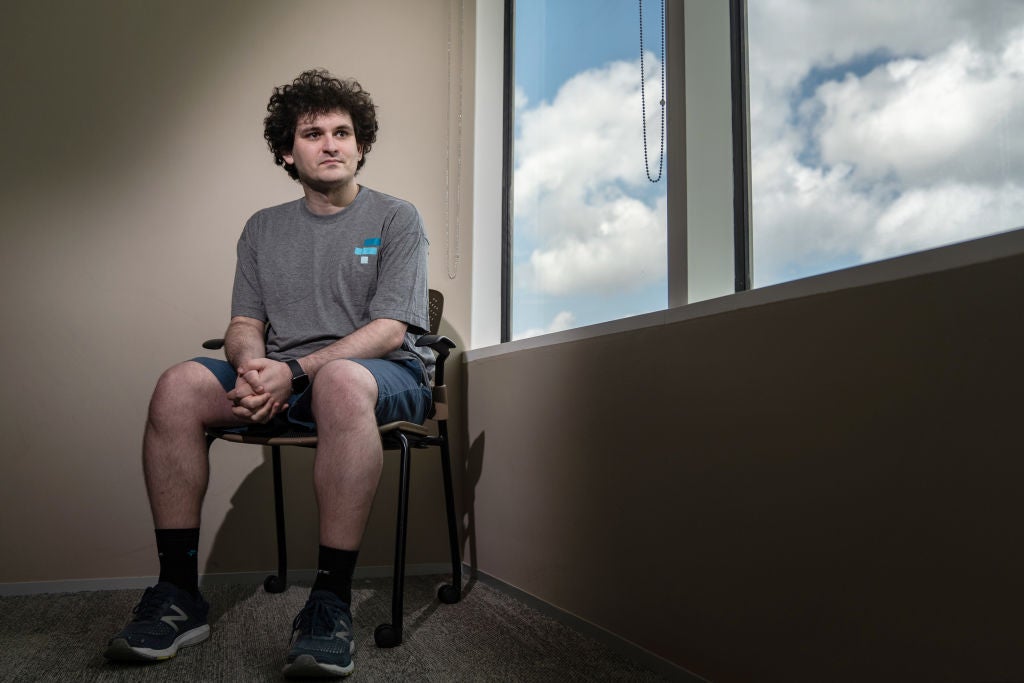
The carnage in the tech industry continues. Hundreds of thousands of workers have lost their jobs in Big Tech cullings and investment is running dry.
Companies like Deliveroo have shut down international operations, suffered hauntingly harsh down rounds like Klarna, while publicly traded companies like Meta have suffered eye-watering cuts in their stock price. Unsurprisingly, several tech startups have been forced to close up shop over the year too.
The bloodbath in the tech industry is due to a combination reasons, such as skyrocketing interest rates propelled to new stratospheres by Russia’s illegal war in Ukraine and the hangover from the pandemic.
“The era of cheap money is over and there will be a shakeout across every industry,” Lil Read, senior analyst at research firm GlobalData, tells Verdict. “Tech is not immune. We have seen multiple layoffs across Amazon, Twitter, Meta and Stripe, and this will likely continue.”
To provide an idea of how bad things are getting out there, we’d created a list of 10 tech startups that have shut down their services this year.
FTX
Let’s talk about the crypto elephant in the room. While the constant bombardment of headlines over the two past weeks make it difficult to forget, crypto exchange FTX has imploded in an absolutely epic way.
How well do you really know your competitors?
Access the most comprehensive Company Profiles on the market, powered by GlobalData. Save hours of research. Gain competitive edge.

Thank you!
Your download email will arrive shortly
Not ready to buy yet? Download a free sample
We are confident about the unique quality of our Company Profiles. However, we want you to make the most beneficial decision for your business, so we offer a free sample that you can download by submitting the below form
By GlobalDataSam Bankman-Fried, known among crypto bros as SBF, had successfully cultivated an image of himself as an aloof genius who could simultaneously play video games during pitch meetings and be the grownup in the room, a digital dosh developer regulators could trust.
SBF was a major political donor – having injected $5.2m into US President Joe Biden’s 2020 campaign and spent some $40m backing other democratic candidates before the midterms this year – and regularly met with regulators and lawmakers, CoinDesk reported.
He has also backed the bipartisan Digital Commodities Consumer Protection Act, or DCCPA. Decentralised finance developers have voiced fears that the DCCPA would prevent them from building whatever interfaces they want, unless they cooperate with centralised entities.
The bill would also allow for prudential regulators to regularly examine the affiliates and subsidiaries of any major crypt exchange, similarly to how banks are regulated. The collapse of the FTX has left these legislative efforts in limbo.
The still unfolding collapse of FTX kicked off on November 2 when CoinDesk published an exclusive revealing the key balance sheet details of SBF’s Alameda Research trading firm. The numbers showed that the firm had invested heavily in the FTX exchange’s FTT token.
The close ties between the two organisations sent a wave of panic across the industry, which feared that the company wasn’t as financially sound as people would expect.
Days later, the CEO of rival exchange Binance, Changpeng Zhao, usually referred to as CZ, announced that he would sell his FTT tokens, further escalating the run to withdraw assets from FTX.
On November 8, Binance announced plans to buy the troubled competitor, but only if its due diligence didn’t unveil any further concerns. About 24 hours later, Binance pulled out of the deal.
On November 10, SBF said he’d be wounding down Alameda Research. On the same day, a regulator in the Bahamas, where the company is headquartered, froze FTX’s assets. The next day, on November 11, FTX filed for bankruptcy protection in the US. At the same time, SBF stepped down as CEO.
In the days since, SBF has said he regretted filing for bankruptcy. He told Vox in an interview that if he hadn’t filed for bankruptcy, “withdrawals would be opening up in a month with customers fully whole.”
Court filings on Thursday November 17 suggest over one million creditors could be out of pocket, following the collapse of FTX. The issue of whether they’ll get their money back is still up in the air as FTX has frozen withdrawals.
John J. Ray III wrote the court filings. He was appointed as the new CEO of FTX to handle the bankruptcy. He famously helped wind down Enron, one of the worst cases of corporate malfeasance of all time. However, even he is shocked by the scope of the case laid down before him.
“Never in my career have I seen such a complete failure of corporate controls and such a complete absence of trustworthy financial information as occurred here,” Ray said in the court filings.
He continued: “From compromised systems integrity and faulty regulatory oversight abroad, to the concentration of control in the hands of a very small group of inexperienced, unsophisticated, and potentially compromised individuals, this situation is unprecedented.”
The fallout of the company’s collapse has raised fears that the already ailing crypto industry could be in for an even worse time.
Funding into blockchain businesses has dropped significantly this year, as data from research firm GlobalData reveals.
Last year, the industry attracted funding worth north of $51.7bn. This year, investors have barely injected $21.7bn into projects.
In an effort to calm down the industry, Binance's CEO Changpeng Zhao has maintained that the crypto industry will "be fine" despite the turmoil caused by FTX's implosion.
Still, the implosion of the industry darling has raised fears that other exchanges may falter.
Crypto.com, the exchange that bought the La Lakers stadium last year, has downplayed the risk of it being dragged down by the sinking ship.
"Our direct exposure to FTX meltdown is immaterial: less than $10m in our own capital deposited there for customers’ trade execution," Kris Maeszalek, Crypto.com's CEO, said on Twitter. "That’s very little compared to our global revenues surpassing $1bn for two consecutive years."
In an effort to provide "full transparency", Maeszalek has also promised to provide a proof of reserves audit and has shared Crypto.com's cold wallet addresses for its "top assets", as well as embarking on a public relations campaign where he has appeared on several news outlets.
The ongoing saga about the FTX immolation won't just affect the industry already caught in the cold winds of the ongoing crypto winter, but also underscores how tech startups of any size could be forced to close up shop. After all, the company was worth $32bn at its peak in January.
"The fallout of FTX will prompt investors to scrutinise their portfolios, too, and only startups with robust business models will stand a chance of survival," Read said. "Companies will prioritise productivity and profits over people during the recession.”
Celsius
While we're on the topic of cryptocurrencies and tech startups that have been forced to close in 2022, we need to mention Celsius.
Celsius Network filed for bankruptcy on July 13 after a month of turmoil that had seen the embattled crypto lender freeze customer accounts.
Court filings later revealed an astounding black hole in its finances. The company was $1.2bn in the red and had $5.5bn in liabilities.
Celsius had been designed to operate kinda like a traditional bank, but would rather offer cryptocurrencies than fiat currency. Like FTX, it had been considered one of the most successful players in the industry. Just months before immolation, the company claimed to have1.7 million users.
Nirvana Money
It's not just crypto firms that have been caught in the shockwave of market uncertainties. In late November, fintech startup Nirvana Money announced that it would be shutting down operations just weeks after its launch at the Money20/202 conference. At the time, the company boasted that its credit card would "radically simplify money for middle-income earners."
"Nirvana Money is helping those who are ready to have a different relationship with money," Bill Harris, the founder and CEO of Nirvana Money who has previously been the top dog at firms like PayPal and Intuit, said at the time. "A relationship with less worry, more control, and even some fun to help get on a credit and savings ladder and progress towards a healthy financial life."
However, the tone has changed dramatically. Anyone venturing onto the Nirvana Money website is now met by a message saying that the service is being discontinued and that all accounts will be closed by December 1, 2022.
On LinkedIn, Harris has so far been busy thanking everyone who worked at the fledgling fintech and to help them land employment elsewhere. He's also echoed the sentiment of several other tech startups that have been forced to close shop this year: it's not the founder's fault, but the economy's.
"It's primarily the economic outlook," Harris said. "We've got a great concept and a stellar team, but as a credit company lending to the lower end of the credit spectrum into a recessionary environment with interest rates spiking - and all the means for cost of funds. Unfortunately, that's a formula for a sunnier day. Very disappointed, but the right decision. My priority is to land our top notch team on their feet."
Fast
In April, Verdict reported on one of the early casualties of the worsening market conditions: the fintech startup Fast. Founded the company in 2019 and having raised over $124.5m in total – with its most recent raise in January 2021 bagging it a cool $102m – the one-click checkout venture had made a name for itself with a smattering of marketing stunts. For instance, it had recently signed a NASCAR sponsorship before the implosion.
However, no hype in the world could protect the fintech firm from facing one hard reality: it was said to be burning cash and had very little to show for it. Market watchers we spoke to at the time all agreed that this wouldn't have been an issue unless the market conditions had changed so dramatically this year. With investors tightening their purse strings, Fast became the first example of a tech startup being forced to close up shop.
“Fast is another example of the era of cheap money coming to a grinding halt,” Leon Gauhman, CSO and CPO of digital transformation consultancy Elsewhen, told Verdict at the time. “Fast entered a new, growing payments market, spearheaded by true trailblazers such as Checkout.com and Stripe, on the assumption that it didn’t need to be a differentiated product.
Reali
Many startups have endeavoured to give the real estate industry a much-needed overhaul. Proptech Reali was part of this wave. Having secured over $290m since its inception in 2016, according to TechCrunch, the company couldn't cope with the changing markets.
Due to the challenging real estate and financial market conditions and unfavourable capital-raising environment, Reali announced in August that its best course of action was to close the venture.
"Reali was one of the pioneering companies to offer the 'buy before you sell' and 'cash offer' programmes to homeowners," Reali co-founder and chairman of the board Amit Haller said. "We believed deeply in benefiting the consumer foremost in every transaction. The six years Reali spent evolving the proptech market in California helped elevate and transform the industry."
Active real estate transactions will continue to be supported through the end of the year by a small team of employees. Reali is in ongoing conversations with companies that have expressed interest in acquiring specific parts of its business, including mortgage origination, title & escrow, and power buying.
Planetly
COP27 has been all over the news in November. The climate conference has provided another example for politicians to pledge to do more to save the planet. At the same time, data from GlobalData shows that investors still have an appetite to invest in environment-focused tech companies.
So far in 2022, companies in this sector have raised over $2.41bn across 121 capital raises so far in 2022. Of that, $1.54bn have come from venture capital (VC) funding rounds.
The total amount of climate tech funding in 2022 is up from the $534m raised across 45 rounds last year. The capital raised is dwarfed by the $7.48bn injected into the industry across 111 venture financing, private equity, equity offering and debt offering deals in 2020.
However, it seems as if these efforts haven't been enough to save some startups dedicated to help save the world.
German carbon-accounting startup Planetly was shut down in November, just a year after it was acquired by SoftBank-backed risk-management firm OneTrust in 2021.
OneTrust originally touted the deal as part of its "heavy investment" into ESG, but announced it would close the tech startup and its Berlin office this month, Business Insider reported. All of its 200 staff were laid off just a year after acquisition.
Planetly raised $5.7m from investors before being acquired and had customers including BMW, HelloFresh, and The Economist Group.
Argo AI
Despite decades of promises, self-driving cars are still far off from becoming a reality. The dream may seem even further away after promising autonomous vehicle venture Agro AI was shut down in October.
The technology company had raised billions of dollars from Ford and Volkswagen. However, those cash injections didn't save it from closure. The strartup had been led by former Google and Waymoo engineer Bryan Salesky. It had employed some 2,000 workers.
Ford blamed the venture for its quarterly loss, Forbes reported.
“In 2017, when Ford invested in Argo AI and autonomous vehicles, the company anticipated being able to bring Level 4 ADAS technology broadly to market by 2021, but things have changed,” Ford CEO Jim Farley said in the company’s quarterly results announcement. “We’re optimistic about a future for L4 ADAS, but profitable, fully autonomous vehicles at scale are a long way off and we won’t necessarily have to create that technology ourselves.”
Fifth Season
Vertical farming is all the rage in agritech circles. These modern indoor farm would, arguably, provide a path towards more food security and lower the carbon footprint of the food industry. However, exciting as that promise is, not all vertical farming startups will be there to see it fulfilled.
In later October, vertical farming startup Fifth Season was forced to shut down its business, Pittsburgh Business Times reported.
The shutdown also ended Fifth Season's planned expansion for Columbus, Ohio next year.
At the time of closing, Fifth Season had raised $35m from Drive Capital, 99 Tartans, Reinforced Ventures, Alumni Ventures and Grit Ventures.
Voly
In November, Deliveroo has ceased its operations in Australia. However, it's not the only delivery venture feeling the squeeze down under.
Rapid grocery delivery service Voly reportedly halted its deliveries in early November. Anyone logging onto the tech startup's app were told that the business was "closed until further notice", Startup Daily reported.
The tech startup's co-founder and co-CEO Thibault Henry confirmed the news on November 17 via a LinkedIn post.
"The sudden changes in macro environment, unstable geopolitics and high inflation have made it extremely difficult to attract new capital despite the support of our current investors," he wrote. "Without enough runway to reach profitability we had to make the difficult decision to stop operating."
After the customary thanks to customers and staff members, Henry added a hopeful note to other startup founders out there.
"To every founder out there, it is a tough environment, hang in there and good luck with everything," Henry said.
Faze Medicines
Medtech startup Faze Medicines has closed its doors. The company was built by venture capital firm Third Rock Ventures. The investor has now pulled the plug on its funding, Stat News reported in November.
"Faze was built on a unique condensate biology platform and a target-based approach to condensate drug discovery," Third Rock wrote in a statement to Endpoint News. "While advancements were made in the company’s ALS and Oncology programs since launch in late 2020, the science did not progress sufficiently to meet our bar for further investment.
"When Faze management made the recommendation to wind down the company, we – and the board – supported that decision. We appreciate the dedication of the excellent scientists advancing this complex biology, and the discipline of the leaders at Faze in making this difficult decision."
GlobalData is the parent company of Verdict and its sister publications.






